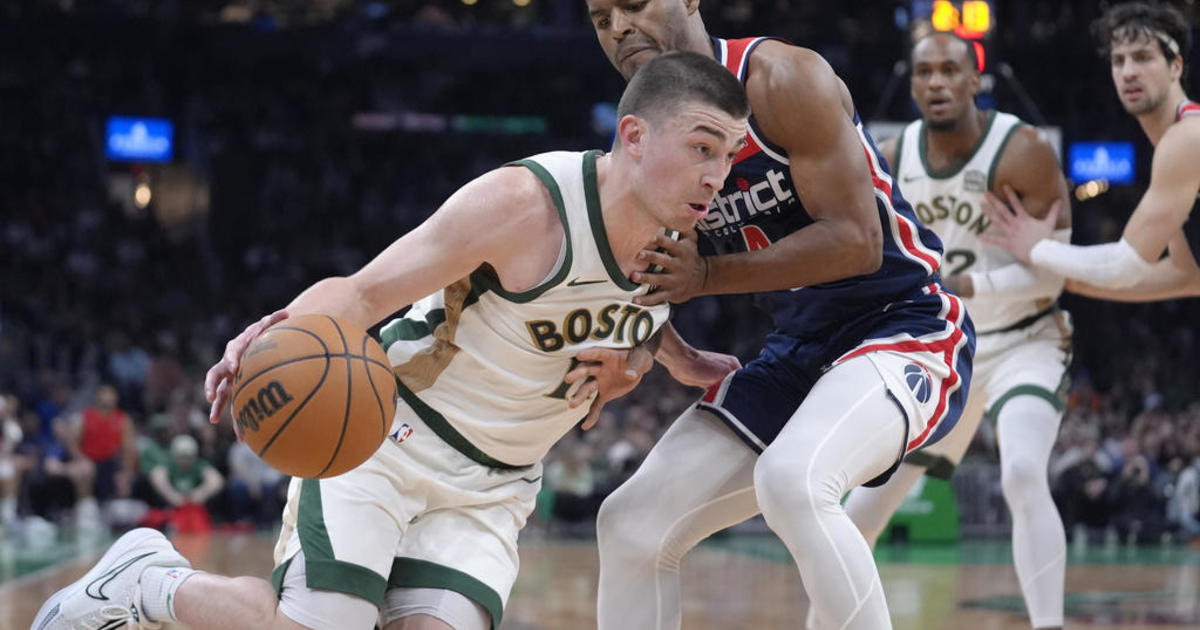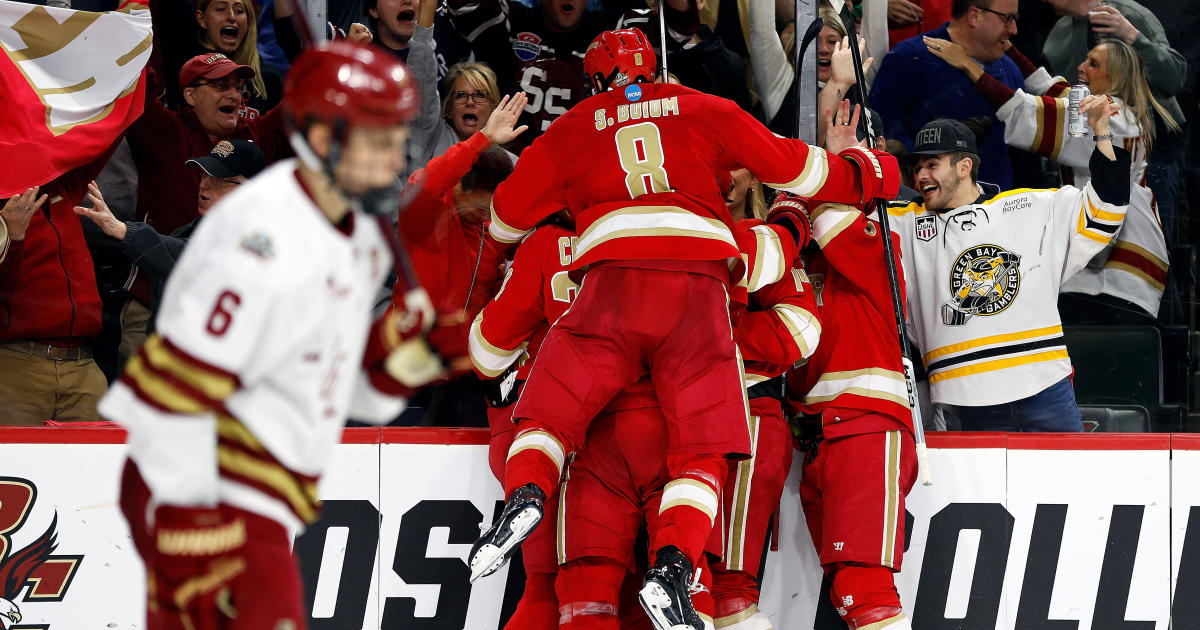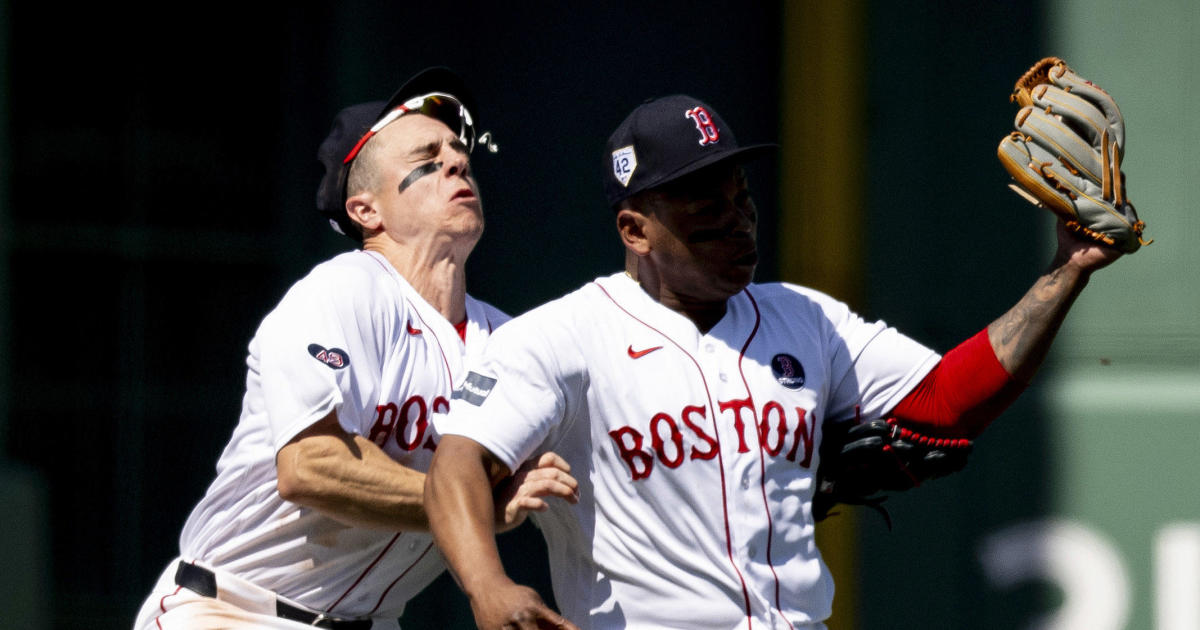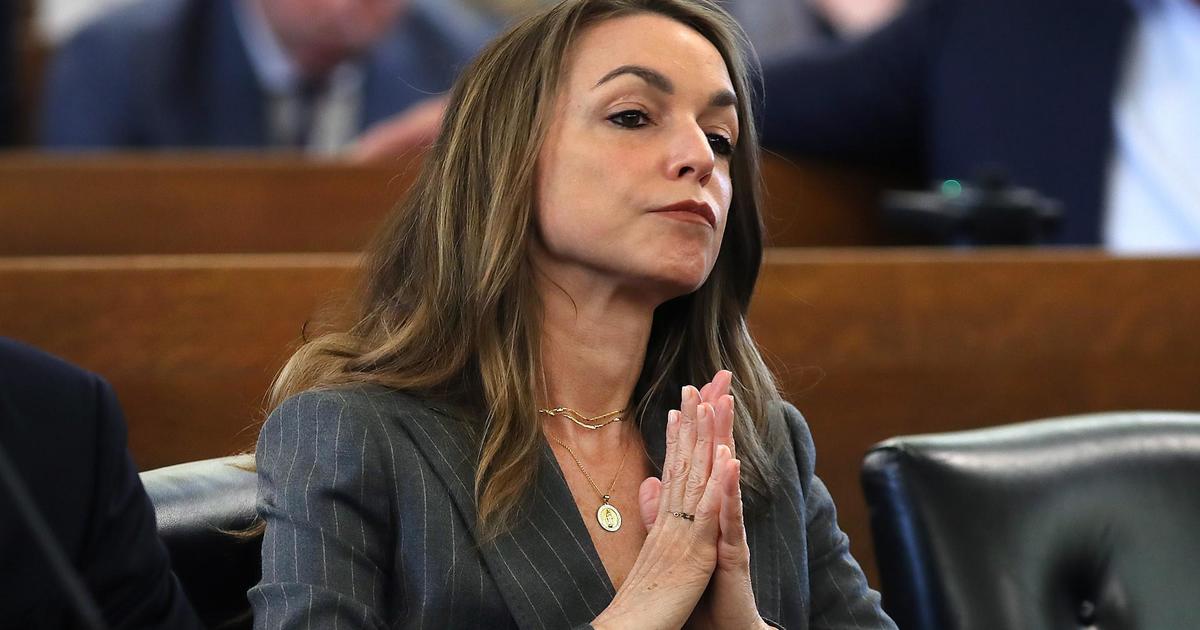Hurley: Roger Goodell, NFL Are Betting On Public's Apathy -- And Winning
By Michael Hurley, CBS Boston
BOSTON (CBS) -- Credit to the National Football League for this: The people in charge know what they're doing.
Yes, they may deceive and cheat to accomplish their desired goals, but man, are they good at it.
The latest victory for the NFL came after its "comprehensive investigation" into allegations of PED use by four very high-profile stars. To be sure, the last thing the NFL wanted was to bust players for drug use. For one, it's bad PR to have a league full of actual "cheaters," but more so, it would perhaps open the door for the league to require stricter testing, which would then catch more people taking banned substances, which would thus create even more bad publicity.
The NFL didn't want that. And it won't get it.
Again, credit to the league officials.
And now, in the immediate wake of commissioner Roger Goodell's use of the threat of suspension based on his own personal whims, it's become more clear than ever: The NFL only wants you to know exactly what it wants you to know.
It may seem self-apparent, but what it means is that the truth -- which is sometimes ugly -- is not a priority for the league. Control of the national conversation is much more important.
It means that if there's a real problem -- say, if a player commits a horrifically violent act against his fiancee inside of a casino elevator -- the league will do its best to try to shoo it under the rug. It's best not to have the country focus on such a thing. And hey, how about those cheatin' Patriots?
This strategy may not differ greatly from any massive, money-making corporation in America, but there are some key differences at play. Few other corporations are consumed at the level the NFL is consumed. Few other corporations spend so much time and effort to try to convince the world of its good intentions, either through catchy "Football Is Family" taglines or through the filming and airing of "powerful" PSAs.
Yes, public relations professionals have their jobs for a reason, but few other corporations this side of Enron manage to so often contradict themselves quite like the NFL.
If it seems bad, and immoral, and unethical, that's because it is. But is it any worse than the American public demands them to be?
I don't think so.
Much like content churning websites that rely on hits to stay in business, the NFL has simply gotten in the habit of giving people what they want. (That's why you've gotten so much Tim Tebow content over the years, people. Please stop clicking.)
Frankly, people couldn't get enough "DeflateGate." Even people who claim they ardently hated the whole thing ended up spending hour after hour debating PSI levels and texts from officials locker room attendants.
Domestic violence? Eh. Some people get really upset by the gross hypocrisy and empty promises from the league. But not too many people. And even then, it doesn't last very long. Folks move on. Josh Brown just wants to kick field goals, you know? And the American public is mostly OK with that. It's rotten and it's wrong, but hey, what are you going to do?
The league knows this, and it bets quite often that it can accurately forecast the response of the country at large. Aside from the mangling of the Ray Rice debacle -- which it came dangerously close to getting away with -- the league has pretty much gotten it right.
For proof of this strategy, you need to look only at the end result of the "investigations" headed by the NFL in recent years.
In the case of "bullying" in Miami, aka one adult man being a jerk to another adult man, the NFL paid "independent investigator" Ted Wells reportedly between $3 million and $4 million. He came up with a thorough 144-page report, which was released to the public for everybody to read. They loved digging through those salacious text messages, and Incognito always played like a jerk on the field, so who really cares if he's overpunished, right? Right.
In the case of a grand "ball-deflation scheme," the supposed origins of which never made any logical sense at all, the same "investigator" was hired for the same hefty price. He came up with an intentionally obfuscated report of 240 pages. Few could even read read the full thing; after all, it was written so poorly that some people wondered if it was done so intentionally, so as not to allow people to really grasp the details. Plus, who really has the time to read a novel about deflated footballs? But Tom Brady was condemned within the first five pages, and that was enough for everybody.
With "DeflateGate," the NFL guessed that it had the perfect shiny object to divert people's attention from the lingering stench of the Ray Rice cover-up.
The NFL guessed correctly. With a bullet.
Ultimately, pinning a future Hall of Famer who's arguably the best to ever play the quarterback position as a "cheater" does nothing to damage the NFL -- not in terms of profits, not in terms of TV ratings, and not in terms of headaches. Quite the opposite, in fact.
Now, when it comes to issues that could potentially present actual problems, the league has operated quite differently.
Consider this most recent PED case in which Peyton Manning, the league's Golden Child for nearly two full decades, was accused of -- children, avert your eyes! -- relying on some improper medications to recover from multiple neck surgeries in order to get back on the field. Despite the fact that most people wouldn't have much of a problem with that situation, the NFL couldn't allow it. Approving of such behavior got Major League Baseball in trouble in the '90s, and who really has the time to deal with being ordered to testify in front of Congress? That's such a headache.
Instead, the NFL had to present the image of a league that sought to fight PEDs, so they put their investigative team on the case (after reporetedly saying "thanks but no thanks" to the MLB/USADA investigation into the same accusations). They did not spend millions of dollars for an outside investigator, and they did not release a report of 200 pages for the American public to read. Nope -- in clearing Peyton Manning of any and all wrongdoing in his entire life, the NFL issued a statement of just 129 total words.
A month later, when the NFL cleared James Harrison, Clay Matthews and Julius Peppers of the same charges, it manged to outdo itself, clearing the names of all three men in a statement of just 106 words.
We don't know who was interviewed, what the "investigation" actually entailed, whether the players were forced to hand over their personal cell phones, or what the lowly game-day employee in the officials locker room said in his fourth sit-down interview with investigators. We know nothing; and that's the way the NFL want this song and dance to go.
Tom Brady provided, in all likelihood, an even greater level of cooperation with the NFL when he agreed from the get-go to sit down with NFL investigators. And he did sit down with them, for hours, answering every single question, even drawing the praise of Ted Wells for being fully cooperative. But Brady didn't hand over his personal communications, and even though the would-be recipients of any ordered "code reds" gave their phones to investigators, Brady had to pay. Non-cooperation. Four games!
The NFL's bet on American apathy was never more clear than in the most recent Josh Brown situation. The kicker was arrested last year for domestic violence. In fairness, seemingly nobody knew about the arrest, so the NFL could have tried to ignore it in hopes of nobody ever finding out. But that type of strategy failed the league with Ray Rice, so the NFL felt it best to ever-so-mildly address the situation by suspending Brown for one game.
The league made the announcement by ... making no announcement of all. A player for the team in America's most-populated city, America's largest media market, was suspended for violating the brand-new domestic violence rules instituted by the league, and the NFL said zero words about it.
It was only after some media outrage that the league scrambled to say something about the investigation which somehow led the league to drop the mandated six-game suspension to just one single game. But even then, there were no details, no 200-page reports, no nothing. The statement in response to the outrage was just 324 words.
Not a whole lot for the American public to chew on. Not a whole lot of answers. And, in a related story, not a whole lot of public interest.
And lo and behold, there was Colin Kaepernick striding in to get the public to focus on something entirely different. Even though a major party presidential candidate has been stating for more than a year that our country is very bad and needs a lot of fixing, here is a football player saying that the country has some issues. And it's a black player ... who isn't very good at football anymore ... commenting on a social issue that's proven to be a lightning rod in the country for the past several years.
It is the perfect storm. The league can handle Colin Kaepernick much better than it can handle Josh Brown. And pageview chasers have celebrated, posting comments from every single person in the world who has chimed in with an opinion, thus keeping the content cycle alive and well, day after day.
They're doing the NFL's bidding.
So long as it's the player and not the league that gets painted as the bad guy, the league is quite happy.
The bottom line is this: People get upset because Roger Goodell doesn't hold himself accountable. But that's only the case because the country is not forcing him to be held accountable. The owners won't hold him accountable, not while their wallets get stuffed with billions of dollars they never even needed. The players can't hold him accountable until their well-intentioned union manages to claim some actual power. The only way Goodell can be held accountable is if the people actually force it to happen. But people get mad -- for a month, a week, a minute -- and then move on to the next thing. There is, after all, football to be played on Sunday.
As evidenced by DeAngelo Williams' latest comments about the commissioner, it's obvious that Goodell doesn't have the trust of the players who make up his league. But Goodell knows that he doesn't need that trust, so long as he has a proper read on the American public.
Clearly, the NFL decides what it wants you to think about and what it would prefer you ignore.
The NFL wanted you to believe that Tom Brady and the Patriots were guilty cheaters. You complied.
The NFL wanted you to ignore the fact that Peyton Manning had HGH shipped to his house under his wife's name. You complied.
The NFL guessed that most of you aren't activists who spend multiple hours per day fighting society's problems with domestic violence. You proved the NFL to be correct.
The NFL believes that you, more than anything, love the sideshows and the gossip and the opinions and the yelling and the screaming on TV. You have incidentally rewarded the NFL for its faith.
Some of these issues are more significant than others, but they are all related. And the stark contrast in the treatment of the frivolous cases vs. the serious cases is no coincidence. The NFL knows damn well what it's doing.
And, smartly, the league believes it has a good enough read on the American public for it to work.
It's up to you to prove the league wrong. So far, the NFL remains undefeated.
You can email Michael Hurley or find him on Twitter @michaelFhurley.



